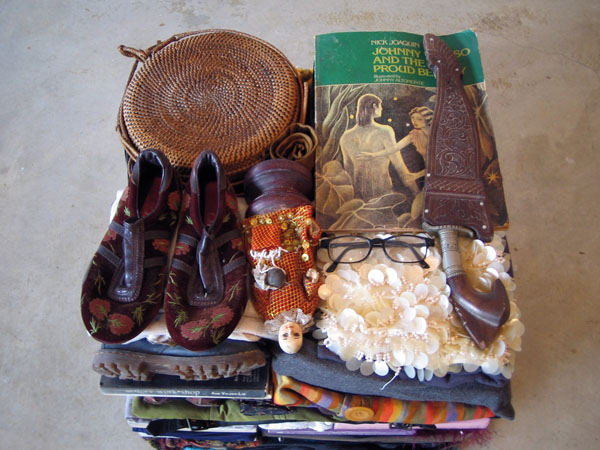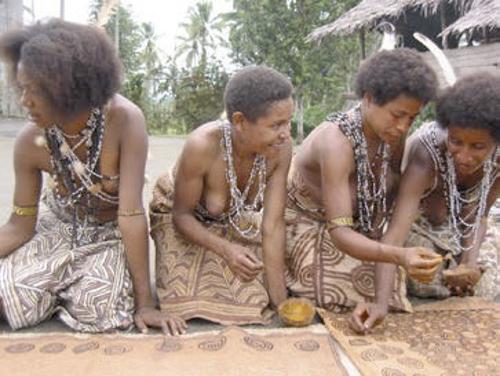
While effectively representing both the uncertainty of migration and the complexity of familial bonds, the work of Alfredo and Isabel Aquilizan is most successful in creating lines of communication and facilitating a cross-cultural dialogue between artist and audience. The work 'Project Belonging: In transit (2006)' is a document of the artists and their children's relocation from the Philippines to Australia. Originally featured in the '2006 Biennale of Sydney', the work consists of the personal belongings of the family arranged in numerous cube or box formations. Clothing, books and toys compose the piles, which evolve from a practical organisation of personal effects for travel to a detached, minimal sculpture in a gallery setting.
The significance of transit and fluidity in the work is immediately communicated. The upheaval of the family's existence and its radical reordering to facilitate travel are apparent. The works are arranged as cargo suspended in travel and waiting to be moved to a final destination. There is an atmosphere of anticipation, as a conclusion to the process of relocation is awaited. There is subsequently an uncertainty inherent in the work and even an anxiety, as the treasured belongings of a family are adrift in transit. The absence of actual containers emphasises the fragility of this displacement, yet the tight and systematic organisation of the contents reflects a staunch will to survive.
What is additionally apparent is the presence of a personal history. Despite the practical arrangement of the components for the realities of travel, a sense of romantic autobiography emerges from the work.
What is presented has been filtered through a process of meticulous organisation. The everyday items are arranged in relationships and dialogues unknown to the viewer. This is communicated as a highly sentimental exercise, as mundane objects are arranged as much to preserve the memory and patterns of a former domesticity as to prepare for relocation and new conditions. The objects become signifiers of the foundations of home and familial organisation in the face of upheaval and dispersal.
Ultimately it is what is not presented that defines the nature of the work. The artists could have easily communicated the themes of personal relocation by presenting the cargo boxes, perhaps with a description of content or destination. However the absence of the cargo boxes establishes a personal dialogue with the viewer. The work becomes relational, emphasising not only the interaction between the Aquilizans, but also between the Aquizilians and their audience. The viewer is invited to sift through the lives of the artists and formulate their own conclusions as to the arrangement of material.
A rationale for the organisation of content is not revealed. The viewer is unaware of which works belong to which family members or why objects have been grouped together. It is through this omission that one of the greatest paradoxes of globalism is played out. By avoiding broader explanatory categorisations and encouraging engagement with the personal and specific aspects of the work, the universality of the work is revealed and a cross-cultural dialogue emerges. Instead of seeking to comment on the westernisation of global culture, the exhibition emphasises the process of exchange as central to the process of globalism. While many of the artists' belongings contain examples of western media, they are so reconfigured and personalised within the works that they can be ascribed only to the artists. The Aquilizans are not concerned with addressing the western cultural influences on the visible components of their lives. Neither are they concerned with representations of disparate nationalisms to emphasise the implications of their migration. Instead they focus on the immediate points of exchange within their familial organisation, their destination and their audience. The work of the Aquilizans is foremost an attempt to communicate and create new connections in an uncertain future, while maintaining the internal connections of their shared past.












